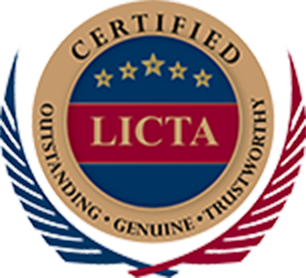Introduction
Under Section 36(1) of the Malaysia Income Tax Act (ITA), the Director General of Inland Revenue (DGIR) is empowered to introduce special tax treatments for certain types of business income. These include hire purchase transactions, debt instalment transactions, and lease transactions. To standardize this, the DGIR issued the Income Tax Leasing Regulations (ITLR) 1986, which specifically apply to lease transactions of movable assets. This article explains the rules and compares Malaysia income tax lease vs hire purchase.
What is Lease under Malaysia Income Tax Act?
- ITA s.2: Lease includes “a sub-lease, a tenancy for three years or less, and any agreement for a lease or sub-lease.”
- ITLR 1986 Reg. 4: Lease means any agreement or arrangement under which payments are made for the use of an asset.
- Scope: ITLR applies only to movable assets, not immovable property.
- PR No.5/2014: A lease is a contract where the owner (lessor) provides an asset for use by the lessee in return for consideration (rental), either fixed or variable, for a fixed or flexible period.
👉 At the end of the lease period, the asset is either returned to the lessor or disposed of according to instructions. Both finance leases and operating leases are accorded the same tax treatment under Malaysia tax law.
Key Differences Between Lease and Hire Purchase
Here’s a breakdown of the differences:
| Category | Hire Purchase | Lease |
| Option to Purchase | Yes | No |
| Ownership | Buyer | Lessor |
| Tax Treatment | Income from leasing and non-leasing activities (hire purchase) must be treated as distinct sources for tax purposes | Treated as lease income; governed by ITLR 1986 |
| Asset Return | Buyer becomes owner after final payment | Asset returned or disposed of as per lessor’s instruction |
| Applicable Law | Hire-Purchase Act 1967 + ITA s.36(1) | ITLR 1986 + ITA s.36(1) |
| Asset Type | Movable property, often machinery/vehicles | Movable property (regulated by DGIR), includes finance & operating leases |
Key Takeaways
- Under Malaysia Income Tax Act, lease and hire purchase are separate and regulated differently.
- Leases are only applicable to movable assets and fall under ITLR 1986.
- Hire purchase involves ownership transfer after final instalment.
- For tax purposes, leasing vs hire purchase must be treated as distinct income sources.
FAQ on Lease vs Hire Purchase (Malaysia Tax)
Q1: What is the main difference between lease and hire purchase under Malaysia tax law?
A lease does not transfer ownership, while hire purchase allows eventual ownership by the buyer.
Q2: Does ITLR 1986 apply to all assets?
No. It only applies to movable assets, such as vehicles and machinery.
Q3: How is income treated differently for lease and hire purchase?
Leasing income is categorized under ITLR 1986, while hire purchase income must be treated separately from leasing activities.
Q4: Which law governs hire purchase agreements?
The Hire-Purchase Act 1967, along with ITA s.36(1).
ANC Group – Your Personal Tax Advisor
Tax consulting is the core service of ANC Group. Our tax professionals provide clients with comprehensive tax support and guidance. We offer tax consulting and compliance services for expatriates, entrepreneurs, and listed and non-listed companies.
Our tax consulting services include business tax, transaction tax, personal tax, and corporate income tax. We don’t just guide you in interpreting and applying complicated taxation rules, but to explore new opportunities and business trends.
ANC Group keep you abreast with Malaysia tax updates and any changes in the local regulations.
We work closely with industry specialists, authorities, and associated professionals within ANC Group to provide the best-in-class integrated tax planning solutions. ANC specialists coordinate the accounting and taxation services to bring your business to success.
If you need professional tax advisory services regarding the Malaysia Income Tax Act 1967, our team is ready to assist you. Contact us here to discuss how we can support your business.










